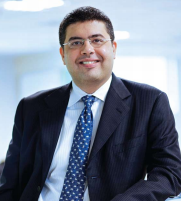Casino reward programs have transformed considerably over the last ten years, becoming vital resources for drawing and maintaining participants. In 2023, the worldwide casino sector was assessed at roughly $130 billion, with reward programs playing a key part in this expansion. These initiatives recognize participants for their support, offering rewards such as no-cost play, eating discounts, and private function admission.
One notable individual in the development of modern membership initiatives is Jim Murren, the former CEO of MGM Resorts International. Under his direction, MGM unveiled the M Life Rewards system, which has set a benchmark in the industry. You can learn more about his contributions on his LinkedIn profile.
In 2022, Caesars Entertainment revamped its reward initiative, now recognized as Caesars Rewards, to enhance user satisfaction and involvement. This program permits participants to accumulate credits not only for betting but also for hotel nights, dining, and leisure, establishing a comprehensive benefits ecosystem. For further insights into reward systems, explore New York Times.
To increase the advantages of membership programs, participants should think about a couple practical tips. First, always sign up for the initiative upon visiting a gaming venue to begin earning points right away. Second, be mindful of the level categories within the initiative, as higher ranks often reveal more substantial rewards. In conclusion, consistently check for offers and bonus credit chances, which can enhance the benefit of your loyalty program. Learn more about these strategies at 1 вин.
As the casino landscape continues to evolve, membership initiatives will likely become even more refined, incorporating technology such as cellular software and tailored promotions. Players who stay aware and active with these initiatives can enjoy a more fulfilling wagering experience.
